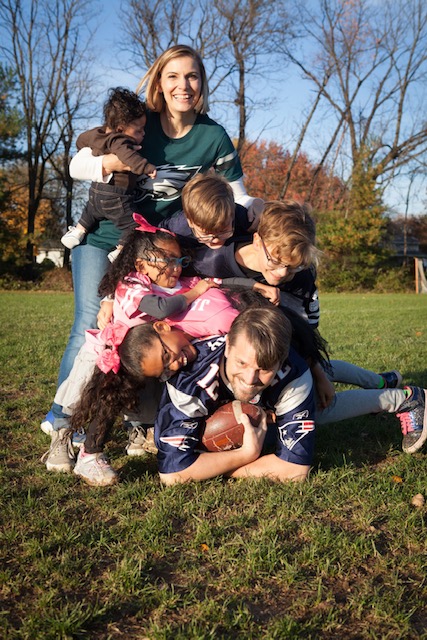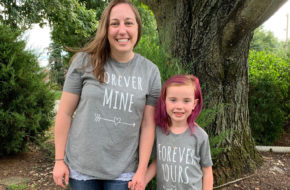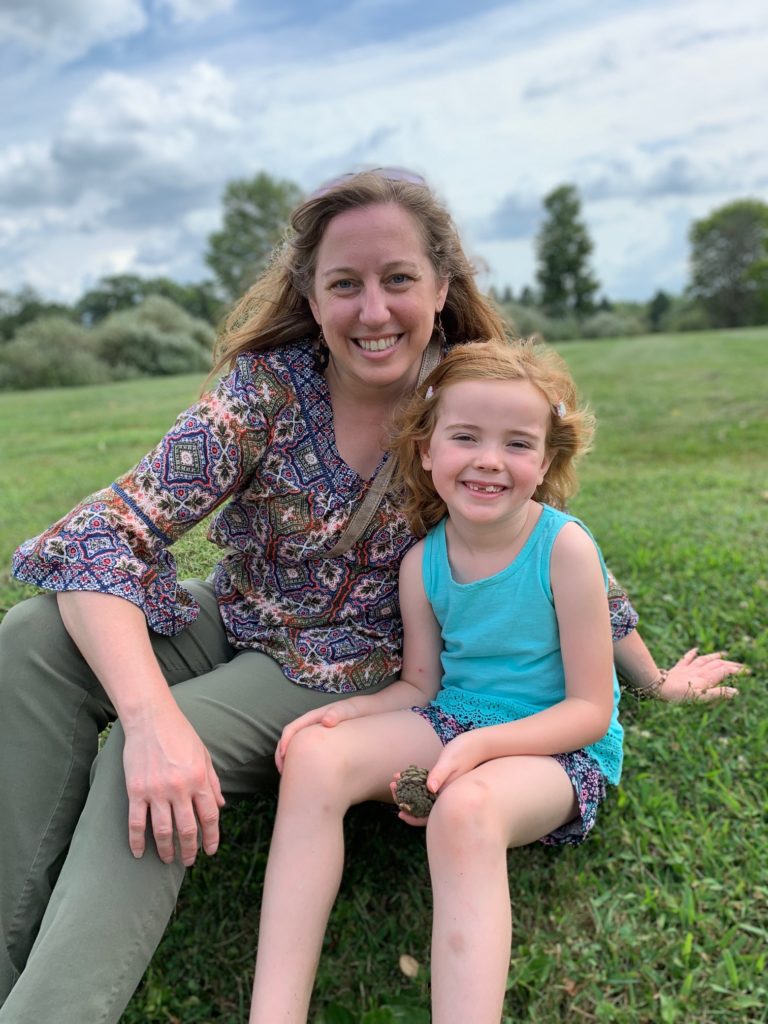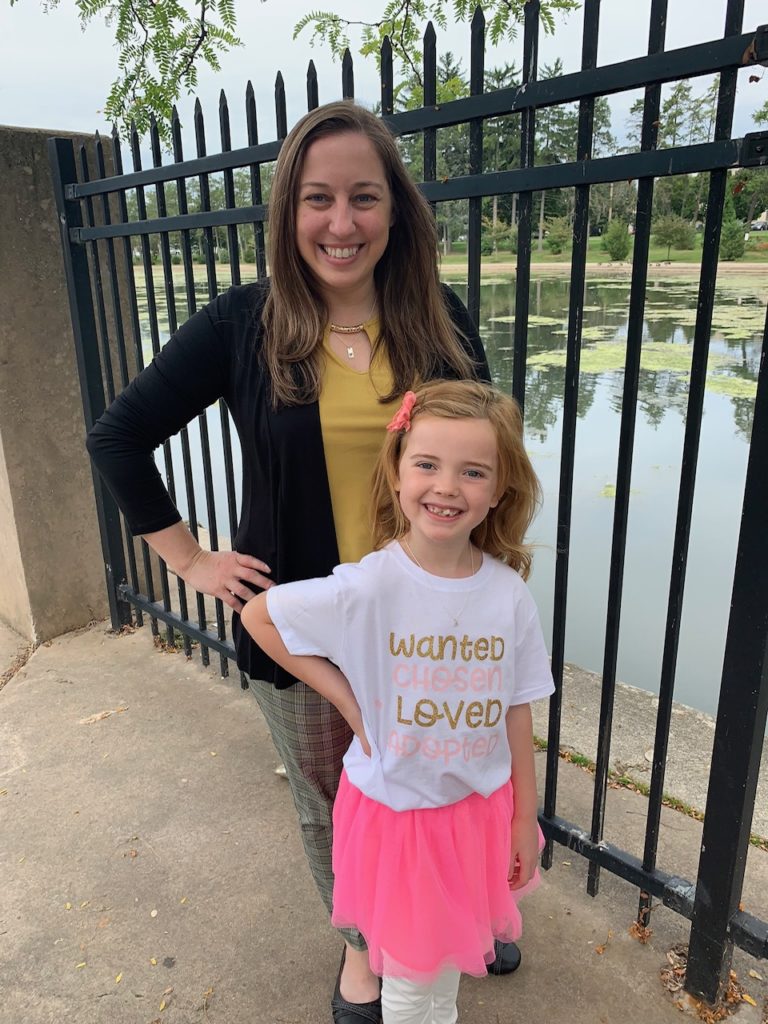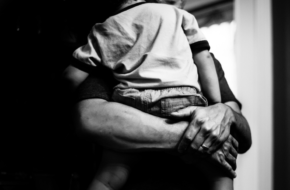Our family started in November 2008. Troy and I got married at the Myakka River State Park, where we met. At that time, we thought that neither Troy nor I could conceive a child, and we had planned our life without children. However, we received the good news that we were pregnant late in 2009, and our daughter Danika was born in 2010 at 31 weeks of gestation. Early on, during her youngest years, we discussed enlarging our family, but Troy and I knew we did not want to go through the NICU experience ever again. After we had decided, we started praying every night for the “sister” that God would bring into our home and our family.
As a child, I did not know that there were children that could live without their parents, and once I found out, a tremendous love filled me, and I had a purpose. My mother was not so convinced and tried to dissuade me at that young age, but that love was always there. I remember every year buying Christmas cards for my friends, and I would order them from UNICEF for over 20 years hoping that the small contribution would go towards orphaned children.
Through my place of employment, we participated in the Christmas Angels program every year for foster care children, but we did not go to Diakon for any resource family information. We started our journey by visiting a different agency but did not have a good fit right away and placed our plans about adoption on hold. My coworker, who had never extended a lunch invitation, one day reached out and asked if I wouldn’t mind dropping off a donation at Diakon Adoption & Foster Care with her and then going to lunch. When we arrived, I was taken by Diakon. I knew this was it. That night I came home full of hope, and when I discussed it with Troy, he was immediately on board, especially because Diakon Lutheran Social Ministries is Lutheran-affiliated, which is the church denomination he attended in his younger years. Looking back, I would say it was a “sign,” an indication from the Lord that our purpose was there.
We went the next day to the office, and things progressed quickly. During our classes, there was a presentation on trauma and its effects on children. It was a day full of strong emotions for both the instructors and the students. We all went out for lunch and strongly considered whether or not we could deal with it. As we sat in the very small restaurant by the railroad tracks, an elderly lady, accompanied by a mid-30s woman who appeared to be her caretaker, sat at the small table next to us. This lady was probably three steps away from me and every time I made eye contact, she gave me the sweetest of smiles. Her companion was seated between her and me, so I only saw her face. Troy and I were engaged in heavy conversations about the horrors of trauma. At one point, Troy got up to get a coffee, and the lady’s caretaker got up to go to the bathroom. This time when I made eye contact, she gave me her sweet smile, and I smiled back and saw that her shirt had a Bible verse written on it. It read: “Perhaps this is the moment for which you have been created”- Esther 4:14. Troy came back to the table and found me trying to hold my tears, and when I explained, we both knew that we were going to do this. Our daughter Danika had been involved in this journey with us since before we went to Diakon, and that night we told her we knew it was going to happen.
Bella came into our home a few months later. Her sister Lilly came into our home nine months after Bella.
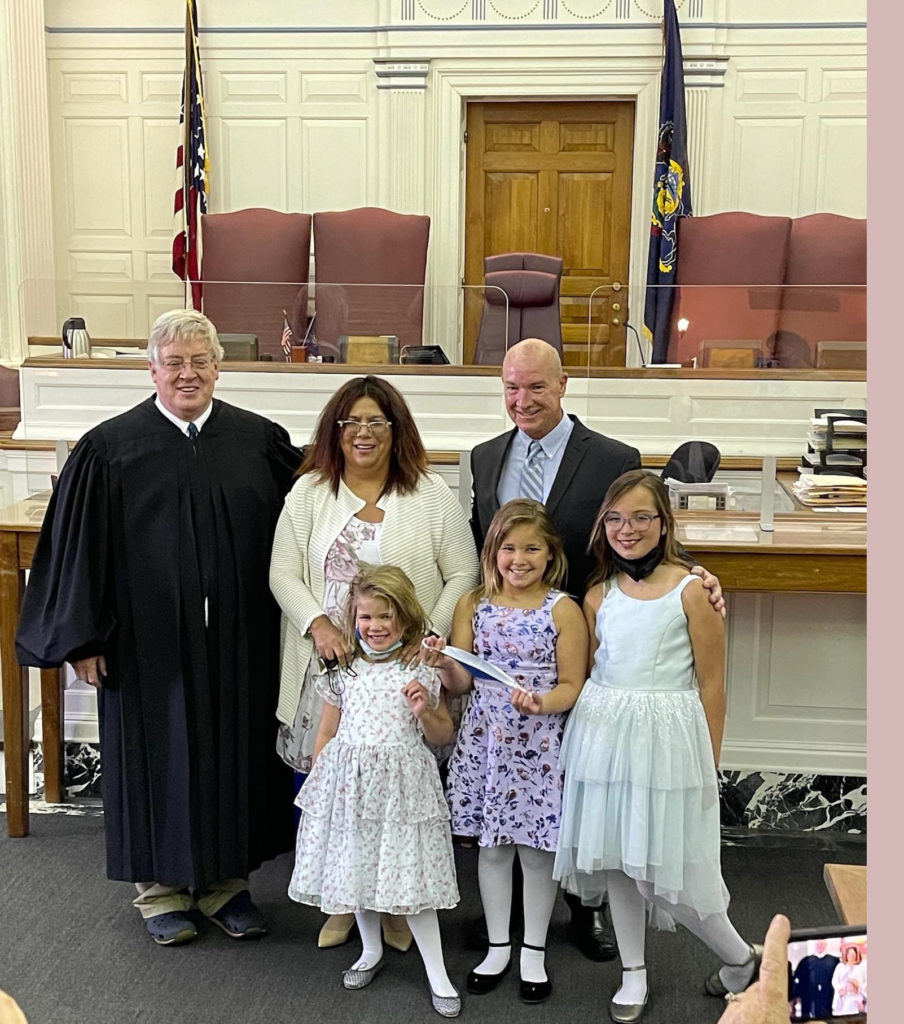
There are so many pieces of advice that we would give now that we have been through this process. The most important ones are:
1. You will never be fully prepared, and you will never be ill-prepared. This is not the labor of one or two people; there is a village of people behind these children that doesn’t stop with your immediate family and friends. Diakon, CYS, social workers, therapists, doctors, specialty therapists, churches, neighbors: they all help! The goodness in people shines when you adopt. Friends, who we didn’t know were adopted, have come into our house to tell us their stories and to lend a supportive hand without prompting. Neighbors dropped off school uniforms (we still have to buy the first uniform for the girls), and the church has surrounded these two girls with love and support. Through Diakon and others, the support gave us a cushion we did not expect. Do not be afraid.
2. Pay attention in the classes and review all material often. Study the information, memorize the locations of resources and enroll in all parenting and trauma-related classes you can attend. We like to say that you should study as if you were going to college. Whether you have a biological child or not, parenting a child requires us to be resourceful and insightful about our interactions and how we provide guidance to the children. When trauma is part of the equation, two plus two does not equal four. What we know about raising our biological daughter does not always apply to our adopted daughters. Likewise, what we know about raising our adopted daughters does not always apply to our biological daughter. Be resourceful. Reach out for advice. Enroll in classes. The sacrifices you make in proactively preparing pay dividends when you see your children are well-adapted.
3. All children need advocates. Biological and adopted children need advocates to fight the larger battles for them until they learn to fight them on their own. We learned through this process that love, although fundamental to a child’s development, is not enough. Children in the foster care system were separated from their parents (trauma) and were placed in temporary placement. Most of the time, they are moved again (more trauma) and sometimes separated from their siblings (more trauma). Understand that your role as a parent is and will always be to ensure these children thrive in life. It takes advocating for them. It takes asking questions, being informed and writing letters, making phone calls and visiting with their team, school and therapists. It takes educating those around you. It takes being their voice because they are looking at you to do it for them. This is where the network that you developed becomes your best support system.
4. Treat the biological family with care and compassion. The children love their biological parents no matter what. They are too young to understand any wrongdoing done by adults. All they know is that they love their parents and family. If contact is allowed by the judge, form a bond with the parents. It will not take away from your relationship with the children. It will strengthen your relationship in the long term. In our experience, adoptees want their biological family engaged. Some of the family might have had problems that you and I will not face, and they probably made choices that you and I would not have made. Be compassionate and wise. You are doing it for the children and their well-being.
We had a lot of surprises during this process:
* We were surprised by the amount of support that continues to be given to us. The overwhelming goodness of people still floors us.
* The innocence and resilience of these children fill our hearts with strength.
* We had always heard that there was a lot of paperwork and prohibitively expensive to adopt. I was surprised that the paperwork could be completed in one or two weekends if you diligently sit to finalize it. We did not have any out-of-pocket expenses that we can recall. If we did, they must have been minimal.
* We thought we knew good people until we met the team surrounding these children.
* The number of children in the foster care system is very large, and some kids age out of the system without ever having a family to call their own.
* The beauty of these children cannot be described here. We were surprised by the immediate connection we had. It was the same as with my biological daughter. The minute we placed our eyes on her, those feelings filled our hearts; it was the same with Lilly and Bella.
Things we learned:
* We learned the definition of trauma.
* We learned that a 5-year-old could be more resilient than a 50-year-old.
* We learned what it is to kneel next to a child’s bed, cry with them and guide them through prayer because we did not know how to change their circumstances.
* We learned to advocate for siblings.
* We learned parenting techniques.
* We learned to admire children for their strength.
* We learned to breathe in together, time-ins and rocking a 6-year-old to sleep is important because nobody had done so before.
* We are STILL learning…
-Written by Diakon Adoption & Foster Care parent Claudia Pankowski
For more information about Diakon’s adoption and foster care programs, please click here.







